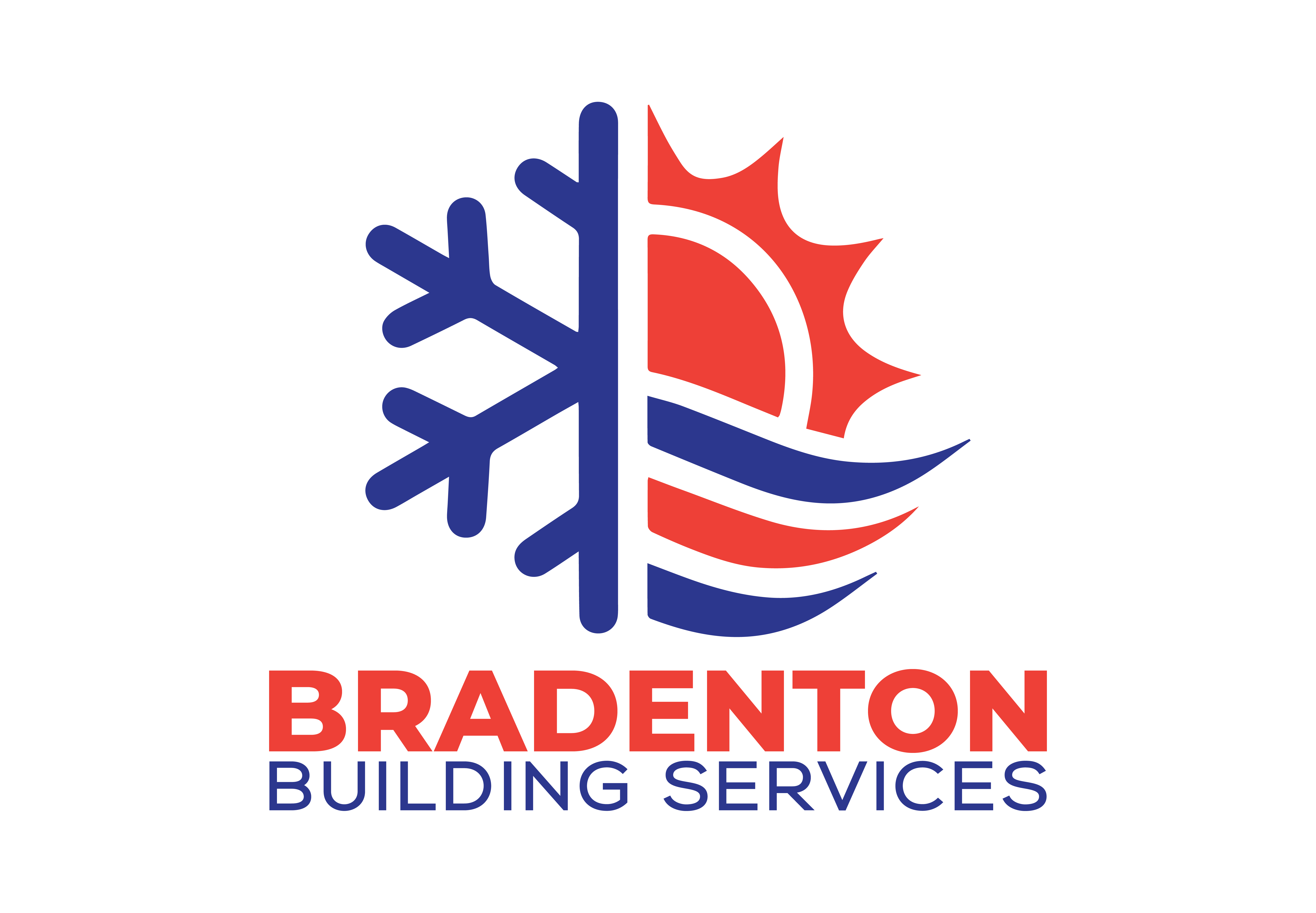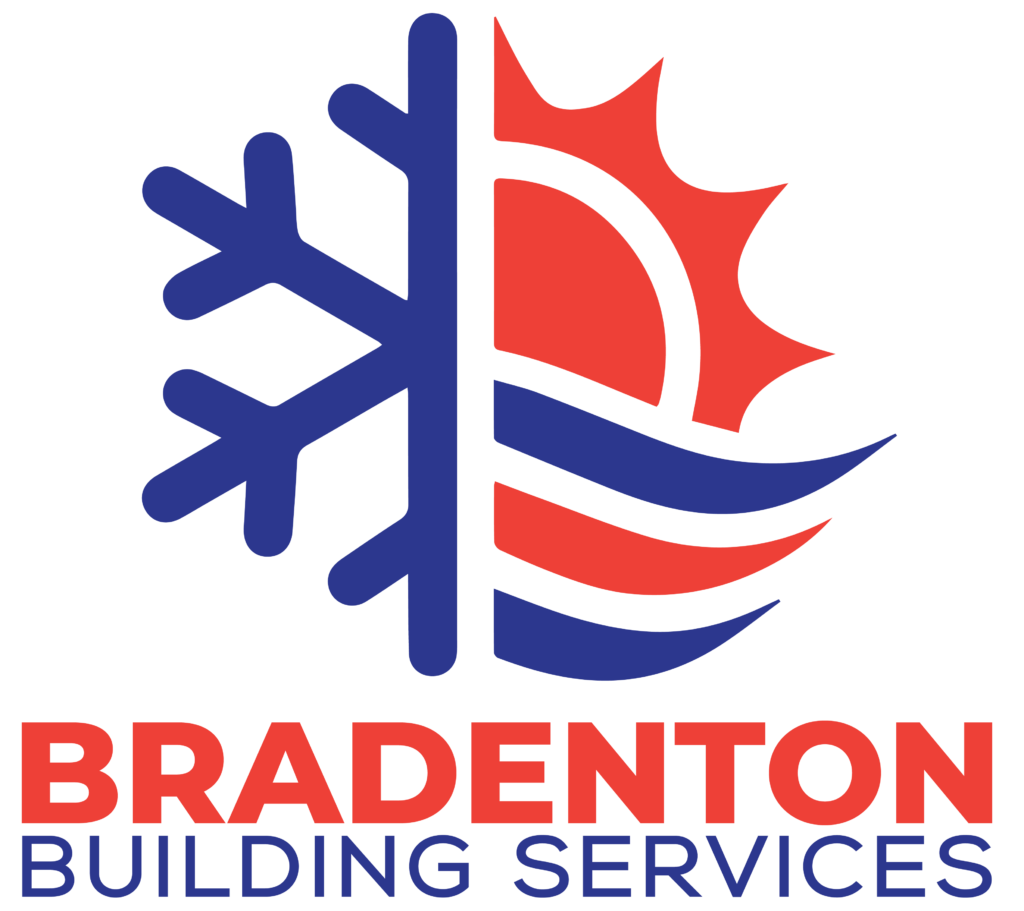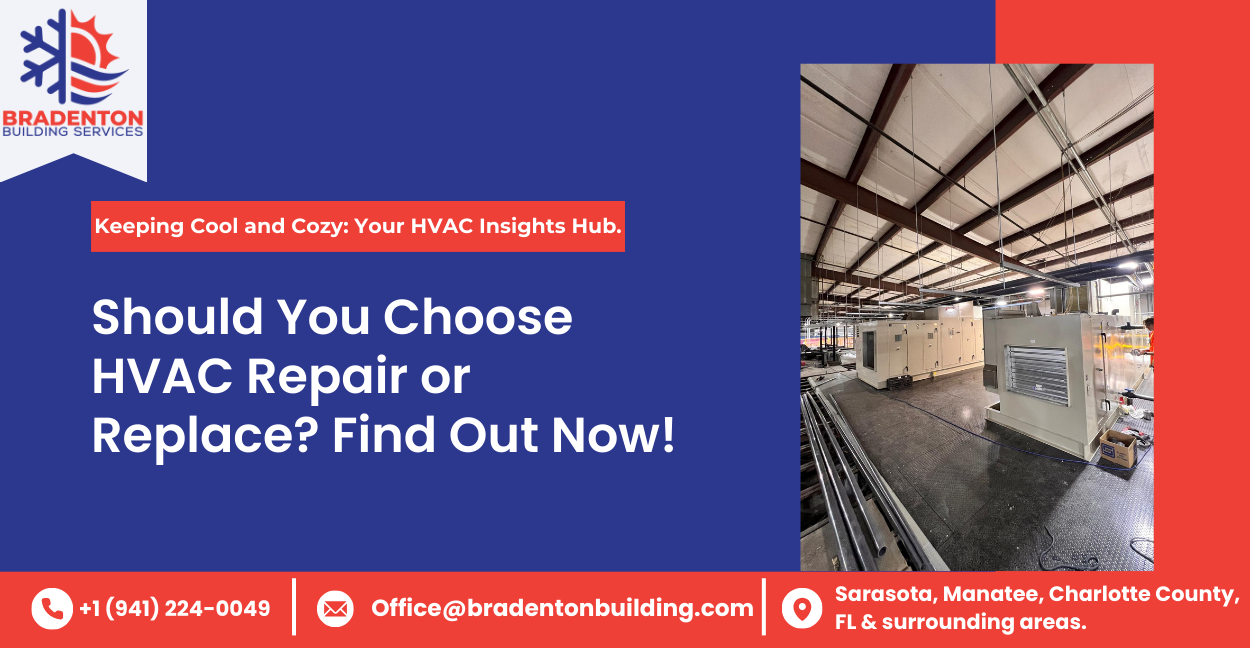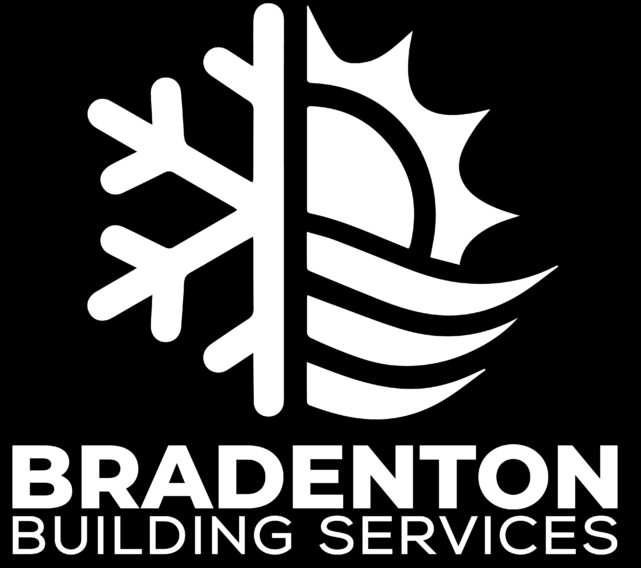An HVAC system isn’t just a piece of equipment; it’s an investment in your comfort and well-being. It keeps your home cozy during chilly winters and refreshingly cool during hot summers, ensuring year-round comfort. But like any hardworking machine, it can show signs of aging or inefficiency over time. When that happens, you’re faced with a crucial decision: HVAC repair or replace? Should you keep repairing the old unit or invest in a newer, more efficient system? Understanding the key factors and evaluating your specific needs can make this decision easier and help you plan for the future. Whether you’re trying to extend the life of your current system or upgrade to something more energy-efficient, we’re here to guide you through the process and help you make the right choice for your home or business.
The Ultimate Guide to Understanding Industrial HVAC Systems
HVAC stands for Heating, Ventilation, and Air Conditioning, and these systems work together to control temperature, humidity, and air quality in your home or business. The heating component keeps spaces warm during colder months, typically through a furnace or heat pump. Ventilation ensures fresh air circulates and removes pollutants, while air conditioning cools indoor spaces and helps reduce humidity in the summer. These three components work in harmony to provide comfort and maintain healthy air quality year-round. A well-functioning HVAC system is essential for energy efficiency and comfort, and regular maintenance helps ensure it operates smoothly. Neglecting your HVAC system can lead to higher energy bills and poor indoor air quality, so timely repairs and upgrades are crucial to maintaining its performance.
How to Know When Your HVAC System Needs Repair
Understanding when your HVAC system needs repair is essential to maintaining comfort and efficiency in your home. Here are some key signs that indicate your HVAC system may require attention:
1.) Inconsistent Temperatures:
If some rooms in your home are significantly hotter or colder than others, your HVAC system may be struggling to distribute air evenly. This could be caused by blocked or leaky ducts, a malfunctioning blower fan, or a thermostat that’s not reading temperatures accurately. When your system is unable to maintain consistent temperatures, it works harder, leading to inefficiency and higher energy bills. Identifying this early can prevent further system strain.
2.) Strange Noises:
Unusual sounds like grinding, squealing, or banging are often signs of mechanical problems within your HVAC unit. A grinding noise could mean that the motor bearings are worn out, while squealing noises might indicate a loose or damaged fan belt. Banging sounds can signal something more serious, such as a loose component inside the system. If left unchecked, these noises can lead to more significant damage, so it’s important to have your HVAC inspected as soon as you hear them.
3.) Weak or No Airflow:
Weak or absent airflow from your vents could be caused by a clogged air filter, blocked ducts, or a malfunctioning blower motor. A clogged filter restricts airflow, making your HVAC system work harder to maintain the desired temperature, while blocked ducts prevent air from reaching certain areas of your home. A malfunctioning blower motor can also lead to weak airflow, reducing the system’s efficiency. Addressing airflow issues early can save you money on energy costs and prevent further damage.
4.) High Humidity Levels:
Your HVAC system plays a crucial role in regulating humidity levels inside your home. If your home feels more humid than usual, even with the air conditioner running, the system may not be effectively removing moisture from the air. High humidity can lead to discomfort, mold growth, and damage to your home’s structure. If you notice this issue, it’s a sign that your HVAC system may need repair to restore its dehumidification capabilities.
5.) Increased Energy Bills:
A sudden spike in your energy bills, despite no change in usage, is a clear sign that your HVAC system is not running efficiently. This could be due to issues like dirty coils, a refrigerant leak, or worn-out components that force the system to work harder than necessary. If your system is older or constantly requires repairs, it may be time to replace it with a more energy-efficient model. Repairing the system can also improve its performance and reduce energy consumption.
6.) Cost-Effectiveness of Repair:
If your HVAC system is under 10 years old and has been well-maintained, repairs are often more affordable than replacement. Minor issues, like a clogged filter or refrigerant leak, can be fixed at a low cost. A good rule is the 50% rule: if the repair cost is less than 50% of a new system, repairing is typically more economical. For example, fixing a capacitor or refrigerant leak may cost a few hundred dollars, while replacing the system could cost thousands.
7.) The Age of Your HVAC System:
The age of your HVAC system is key when deciding to repair or replace. Systems under 10 years old are usually worth repairing, while those between 10–15 years may require a cost-benefit analysis. Systems over 15 years old tend to be less efficient and more prone to failure, making replacement a better option for long-term savings on energy bills and repairs.
Ready to upgrade your HVAC system? Bradenton Building Services offers expert installation and replacement services. Contact us now for a consultation!
How to Know When It’s Time to Replace Your HVAC System
Knowing when to replace your HVAC system is crucial for both comfort and cost savings. Here are some key indicators to help you determine if it’s time for a replacement:
1.) Frequent Breakdowns:
If your HVAC system is constantly breaking down or requiring repairs, it’s a sign that it may be reaching the end of its useful life. Frequent breakdowns can be a result of worn-out components, poor maintenance, or an inefficient system. While minor repairs are often necessary, constant breakdowns can lead to escalating repair costs. In such cases, replacing the system may be more cost-effective than continuing to repair it, especially if the system is older and not energy-efficient.
2.) Uneven Heating or Cooling:
When your HVAC system is unable to maintain a consistent temperature across all areas of your home, it may be struggling with issues like blocked ducts, poor insulation, or an improperly sized system. Uneven heating or cooling can make your home uncomfortable and cause your HVAC system to work harder, leading to higher energy bills. If the problem persists even after repairs, replacing the system with a more efficient model could help restore comfort and efficiency.
3.) R-22 Refrigerant Phase-Out:
One of the most important factors in deciding whether to repair or replace your HVAC system is the type of refrigerant it uses. Older systems that use R-22 refrigerant are becoming obsolete as R-22 has been phased out due to its harmful environmental impact. As a result, repairs to these systems can be costly and difficult to perform, as R-22 is no longer being produced. The industry has switched to R-410A, and now even R-410A is being replaced with more eco-friendly refrigerants like R-32 and R-454B. If your system uses R-22, it’s likely more economical in the long run to replace it with a newer, more energy-efficient system that uses R-410A or R-32.
4.) Outdated Technology:
As HVAC technology evolves, older systems become less efficient and less capable of meeting modern demands. Newer systems feature advanced features such as programmable thermostats, variable-speed motors, and improved energy efficiency. If your HVAC system is outdated and lacks these features, it may not be operating at its full potential. Upgrading to a modern system can improve comfort, reduce energy consumption, and lower your utility bills.
5.) Poor Air Quality:
Your HVAC system plays a crucial role in how to improve indoor air quality by filtering out dust, allergens, and other particles. If your system is old or not functioning properly, it may not effectively filter the air, leading to poor air quality in your home. If you notice an increase in dust, allergens, or musty odors, it could be a sign that your system is no longer performing as it should. Replacing the system or upgrading the air filtration system can significantly improve indoor air quality and create a healthier home environment.
6.) Increased Dust or Allergens:
A buildup of dust and allergens in your home can be a sign that your HVAC system is no longer filtering the air effectively. Over time, the filters in your system can become clogged, reducing their ability to trap dust, pollen, and other allergens. This can lead to poor indoor air quality and exacerbate respiratory issues. If cleaning or replacing the filters doesn’t solve the problem, it may be time to consider replacing the system with one that has a better filtration system.
7.) High Repair Costs:
If you’ve been facing high repair costs for your HVAC system, it could be a sign that it’s time to replace it. As systems age, they require more frequent and expensive repairs, and the cost of keeping an old system running can add up quickly. In such cases, replacing the system with a new, energy-efficient model may save you money in the long run by reducing repair costs and improving overall efficiency. A new system can also come with warranties that can help reduce future repair expenses.
Keep your HVAC system running smoothly with Bradenton Building Services. Whether you need a repair, replacement, or maintenance, our expert team is here to help. Contact us today for reliable HVAC solutions in Bradenton!
FAQs
1.) When should I consider HVAC repair or replace for my system?
The decision depends on factors like the age of your system, the cost of repairs, energy efficiency, and how often it breaks down. If your system is over 10 years old and requires frequent repairs, replacement may be more cost-effective in the long run. A professional inspection can help determine if repairs are worthwhile or if it’s time to upgrade to a more efficient system.
2.) What are the benefits of regular HVAC maintenance?
Regular maintenance helps extend the life of your HVAC system, improves its efficiency, prevents costly breakdowns, and ensures consistent performance. Tasks like changing filters, cleaning coils, and checking refrigerant levels can significantly reduce the risk of major repairs. Consistent upkeep also ensures your system runs at optimal performance, saving you money on energy bills.
3.) What are the signs that my HVAC system needs to be replaced?
Signs that your HVAC system may need replacing include frequent breakdowns, inconsistent temperatures, rising energy bills, and an outdated system using R22 refrigerant. If your system is over 15 years old, it may be more efficient to replace it rather than continue costly repairs. A new system will offer better reliability and energy efficiency.
4.) How often should I schedule HVAC maintenance in Bradenton?
At Bradenton Building Services, we recommend scheduling HVAC maintenance at least once a year, ideally before the cooling or heating season. Regular maintenance helps catch issues early, improves energy efficiency, and ensures your system operates at peak performance. Our expert team in Bradenton can provide thorough inspections and tune-ups to keep your HVAC system in top shape.
5.) How can a new HVAC system improve my energy efficiency?
New HVAC systems are designed with advanced technology that boosts energy efficiency, resulting in lower energy bills. Modern systems use environmentally friendly refrigerants and have improved insulation, air distribution, and filtration, making them much more energy-efficient than older models. Upgrading can lead to significant savings on utility costs over time.
Enhance Your Commercial HVAC System with Bradenton Building Services
Looking for reliable commercial HVAC services, air quality solutions, HVAC maintenance, or air filter services in Sarasota and Manatee? Bradenton Building Services has you covered. We specialize in optimizing HVAC systems to ensure comfort, energy efficiency, and healthy air quality for your business.
Our services include:
- Commercial HVAC Services
- Air Quality and Purification Solutions
- HVAC Maintenance
- Commercial Air Filter Services
Contact us today to schedule a consultation and improve your HVAC system’s performance!




